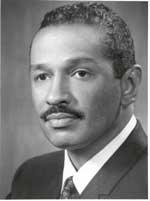Atta Papers Destroyed on Orders
From YahooNews:
WASHINGTON - A Pentagon employee was ordered to destroy documents that identified Mohamed Atta as a terrorist two years before the 2001 attacks, a congressman said Thursday.
The employee is prepared to testify next week before the Senate Judiciary Committee and was expected to name the person who ordered him to destroy the large volume of documents, said Rep. Curt Weldon (news, bio, voting record), R-Pa.
Weldon declined to name the employee, citing confidentiality matters. Weldon described the documents as "2.5 terabytes" — as much as one-fourth of all the printed materials in the Library of Congress, he added.
A Senate Judiciary Committee aide said the witnesses for Wednesday's hearing had not been finalized and could not confirm Weldon's comments.
A message left Thursday with a Pentagon spokesman, Army Maj. Paul Swiergosz, was not immediately returned.
Weldon has said that Atta, the mastermind of the attacks of Sept. 11, 2001, and three other hijackers were identified in 1999 by a classified military intelligence unit known as "Able Danger," which determined they could be members of an al-Qaida cell.
On Wednesday, former members of the Sept. 11 commission dismissed the "Able Danger" assertions. One commissioner, ex-Sen. Slade Gorton, R-Wash., said, "Bluntly, it just didn't happen and that's the conclusion of all 10 of us."
Weldon responded angrily to Gorton's assertions.
"It's absolutely unbelievable that a commission would say this program just didn't exist," Weldon said Thursday.
Pentagon officials said this month they had found three more people who recall an intelligence chart identifying Atta as a terrorist prior to the Sept. 11 attacks.
Two military officers, Army Lt. Col. Anthony Shaffer and Navy Capt. Scott Phillpott, have come forward to support Weldon's claims.








